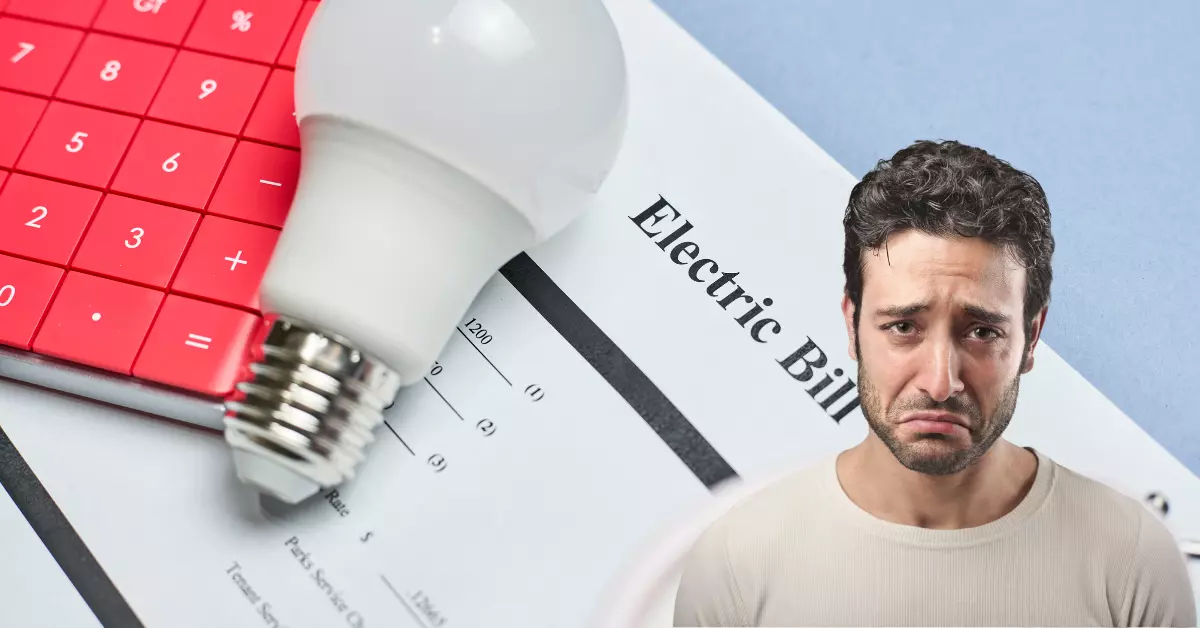
If a tenant doesn’t pay utilities, landlords can deduct the amount from their security deposit. As a landlord, it’s essential to clarify in the lease agreement, whether the tenant or landlord will pay for utilities.
Ignoring the issue could result in unpaid bills piling up, resulting in disconnection of services and a significant loss for the landlord.
In this article, we’ll explore what landlords can do if their tenants don’t pay utilities and the importance of well-drafted lease agreements.

As a property owner, dealing with a tenant who refuses to pay utilities can be a frustrating and troublesome issue. It’s essential to understand the problem of tenant non-payment of utilities before you can tackle it head-on.
One of the primary reasons tenants don’t pay utilities is because they believe it isn’t their responsibility. Some believe the lease agreement is unclear, while others feel they’re being overcharged.
Sometimes, tenants may have financial difficulties, leading them to prioritize other expenses over utilities.
As a landlord, failing to take the necessary steps to address tenant non-payment of utilities can result in significant legal implications. Here are a few potential consequences:
Prevention is better than cure. Proactively dealing with potential issues can prevent massive problems from developing in the long term.
Read About: How to Forward Mail to Previous Owner Usps? Rental Awareness
Maintaining clear communication with tenants about utility payments is crucial to ensure timely payment.
Documentation is an essential part of managing tenant utility payments. It provides clear records of communication and safeguards you if any legal action becomes necessary.
Providing tenants with a deadline for payment encourages them to prioritize payment and prevents delays.

Being a landlord can be a challenging task, especially when dealing with tenants who do not pay their utilities.
However, landlords can take some steps to prevent this issue from arising. Here are some effective ways to prevent non-payment of utilities:
It is always a good idea to talk about the payment terms of utilities with your tenant before they move in. Make sure you explain what utilities they are responsible for and how they should pay for them.
One of the most effective ways to prevent disputes about utility payments is by including it in the lease agreement. Make sure you spell out what utilities are included, when they are due, and how much the tenant is responsible for.
Read About: The Hidden Costs: Does Commercial Tenant Pay Council Rates?To ensure that the tenant is paying their utilities on time, landlords can directly deal with the billing company. This way, the landlord can monitor the tenant’s payments and avoid any non-payment or late payments.
Even if the tenant is responsible for paying their utilities, it is still essential to monitor the payments closely. Keep track of the due dates and ensure that they are paid on time. Late payments can result in penalties or even cut-off services.
One option is to discuss the situation with the tenant and remind them of their responsibilities. If that doesn’t work, you may need to seek legal action or consider deducting the unpaid amount from their rent. Always follow your state’s laws and the terms of your lease agreement.
No, landlords cannot shut off utilities to a tenant as a form of punishment or coercion. It’s illegal and may result in legal action against the landlord. If a tenant doesn’t pay, seek legal advice for the next steps.
Yes, it is common for landlords to include utilities in the rent. This can simplify the payment process and help ensure that the utilities are paid on time. However, make sure to clearly state this in the lease agreement.
You may need to take legal action such as filing an eviction notice, going to small claims court or hiring a collections agency. Before taking any action, consult with a lawyer and make sure to follow the laws and regulations in your state.
When a tenant dodges their utility payments, it’s vital to keep your cool. Review your lease agreement, communicate openly, and if necessary, seek legal advice.
Remember, you’re in control and with the right approach, you can effectively navigate this tricky situation. Stay focused, stay informed, and take action.